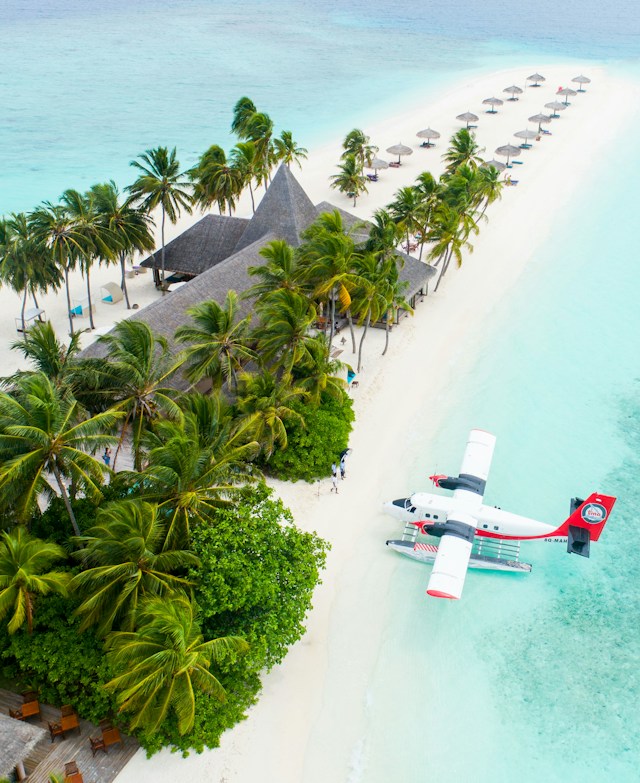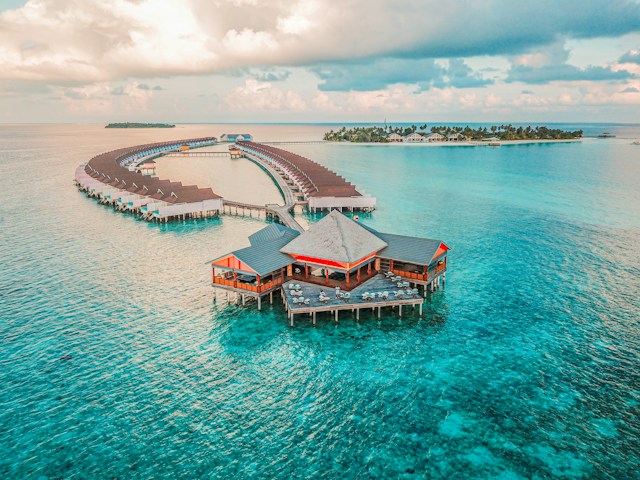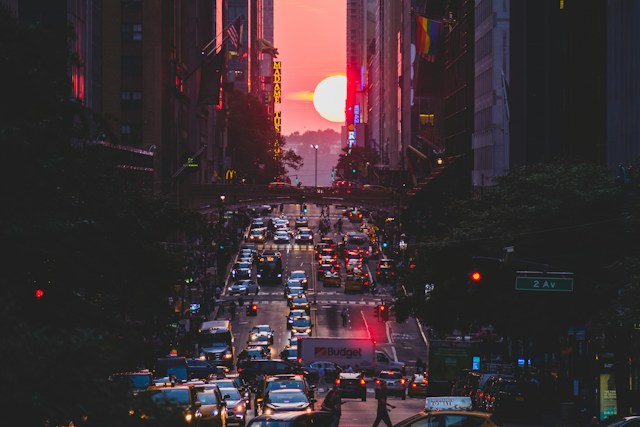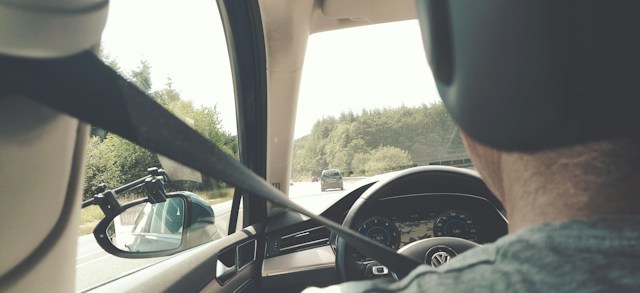Here are my top travel safety recommendations to help reduce the likelihood that something untoward may happen to you while you’re away.
- Recognize Typical Travel Frauds
There are people willing to con you out of your hard-earned money anywhere you travel in the globe. If you’re lucky, they should be rather evident, but there are also many more skilled, experienced con artists in the world.
Though it occurs, everyone believes they are too intelligent to be conned.
These are a few of the most typical travel frauds that I have encountered. I advise you to become familiar with them all before using Google to conduct even more thorough research on the worst frauds occurring at your particular location.
Take the Cuban milk fraud, for instance. Costa Rican taxi meters that are “broken.” like the well-known Paris ring fraud. There are unique scams to be aware of in every nation!
Knowing ahead of time can help you avoid getting conned out of hundreds or even thousands of dollars (along with the kind of aggravation and sorrow that can spoil a once-in-a-lifetime trip).
- Record Emergency Information
In the event of an emergency, you might not have time to look out the phone numbers of the local police, ambulance, or embassy in your nation. It’s also possible that you’re too anxious and agitated to think clearly.
Avoid placing yourself in such predicament. Rather, make a note of that information beforehand and draft a “Emergency Plan” that you can refer to in case things go wrong. Keep it somewhere on your phone (I use the Evernote app).
Additionally, I suggest writing it down on a little card or piece of paper, keeping it in your wallet or purse, and having it laminated (this can be done quickly at your neighborhood office supply store to preserve it from moisture).
The data can also be stored on a tiny USB thumb drive, which you can also use to store copies of your passport and other critical papers.
In this manner, you’ll always have access to your paperwork and know exactly who to contact and where to go for assistance if something goes wrong while you’re traveling.
- Visit the State Department’s website.
Every country in the world has a travel advisory page maintained by the state, which enumerates all known challenges and present hazards to travelers’ safety.
A major warning though: the State Department’s responsibility is to alert you to all potential problems, which may not always coincide with what is most likely to go wrong.
This indicates that they typically advise being extremely careful. Take that into consideration as you get more firsthand knowledge.
Nonetheless, reading up on travel advisories will provide you with a broad understanding of the situation in the nation you’re visiting as well as specific issue areas you might want to stay away from.
- Keep Your Pricelesss Safe
Apart from the fact that it’s generally not a good idea to travel with anything extremely precious, there will always be some items that you can’t afford to have stolen. For example, I carry a lot of pricey camera equipment when I travel.
It is your responsibility to reduce the likelihood of theft.
To begin with, be aware that most travel backpacks are not very safe. It’s simple to assume that a secured, zippered bag will adequately thwart any would-be burglar and to nod off next to it. Finding a hole ripped in the side upon waking up!
Unless it’s a slash-proof backpack, anyone with enough willpower might cut or tear the material. Sharp tools, such as a writing pen, can be used to force open a lot of zippers.
Always be mindful of your valuables, and make an effort to watch them so closely that theft would be impossible without your knowledge. When traveling on train or bus routes where theft is a problem, I’ll use my backpack as a pillow. Occasionally, I’ll use a small cable like this to secure it to a seat.
Second, give your lodging a call and inquire about safe storage options such as a locked storage area, lockers, or a room safe. When sleeping at backpacker hostels, bring your own locker padlock.
- Purchase Travel Insurance
Before you really need it, you never realize you do. If you have adequate insurance, you may almost fully relax if you’re really concerned about the protection of your belongings and yourself when you travel.
I’m frequently asked if I worry about taking an expensive computer and camera on trips. When I lacked insurance for them, I was. I’m at ease now that I know. Items that are stolen will be replaced.
When traveling, everyone should have some form of property and health insurance. Why? since things do happen. Whether or not you believe it will. It makes no difference how cautious you believe you are.
For short-term travel insurance, SafetyWing is what I would suggest. They make online shopping really simple. (COVID-19 is also covered!)
There are good long-term solutions like computer/photography insurance from TCP Photography Insurance and expat health insurance from SafetyWing Remote Health if you’re going to be traveling for an extended period of time (such as a digital nomad).
- Seek Guidance From Locals
Ask a local who lives in the region if you truly want to know which neighborhoods are safe and which may be shady.
The majority of people in the region are kind and will caution you against going into unsafe areas. However, it’s also a good idea to obtain a second opinion if someone you don’t know well offers you advise. You never know if they genuinely don’t know what they’re talking about or, worse, are attempting to swindle you.
In this sense, taxi drivers are not always the best. While some can be great resources for useful information, some are wretched people who could put you in danger.
Front desk staff at hostels and hotels are usually excellent sources for local knowledge, in my experience.
Asking them where to locate fantastic restaurants, how much cab costs should be, and which areas of the city to avoid are all perfectly acceptable questions!
- Make an Embassy Registration
The U.S. Department of State’s Smart Traveler Enrollment Program is intended to notify the local embassy of your destination of your arrival and provide you with up-to-date safety information at all times.
All American citizens and residents residing overseas can access it for free, and it’s a terrific method to have access to current and trustworthy safety information while traveling, as well as an additional layer of protection in case of crises.
A similar exists in Canada under the name Registration Of Canadians Abroad.
In the event of an emergency, such as a terrorist attack or natural disaster, the local embassy will be able to contact you promptly to provide vital information or assist with evacuation.
- Send Your Route To Friends And Family Via Email
Make sure someone else is aware of your plans once you’ve decided where and when you’re going.
Sending the entire itinerary by email to a select family members is the best option. magically make sure they received it by asking them to confirm, rather than assuming it magically ended up in their inbox. After then, try to check in occasionally.
I always let my parents know where I’m going, my general plans, and when I should be back before I leave somewhere.
In this manner, they can assist in informing the appropriate local authorities, the embassy, etc., if they don’t hear from me for a few days after I’m meant to return.
- Limit How Much You Share With Outsiders
It’s important to keep in mind that your itinerary could serve as a trail map for someone with malicious intent, so resist the urge to share it publicly on social media platforms like Facebook.
I also advise not giving someone you’ve just met too many specifics regarding your trip itinerary or lodging. For instance, when asked where you’re living, don’t divulge anything to a street vendor or local store owner.
If someone does ask, you can be evasive about a part of town rather than the name of your hotel, so as not to come across as impolite. Alternately, make up a name for the hotel you’re staying at.
People will occasionally inquire as to if this is your first trip to their nation or city. You can act as though this isn’t your first vacation if you don’t yet trust them. Because admitting to being new could also indicate that you’re a prime candidate for fraud.
White falsehoods will do when feeling exposed in an unfamiliar environment.
- Avoid Doing Weird Things for Pictures
It frequently seems like tourists are participating in hazardous actions in the era of Instagram and TikTok just to get likes on social media. These days, you hear stories on a weekly basis of individuals being attacked by wildlife or falling from cliffs while attempting to take amazing pictures.
Recognize your own boundaries! Avoid foolish actions that carry a high risk of causing harm or death. I’ll admit that I occasionally like to take a little risk, but I try to use caution.
Avoid standing on a cliff’s edge if it appears unstable or is windy. Whenever you travel, be mindful of the cautions and notices that are placed. Stay away from wildlife since they might be unpredictable.
Consider yourself as a member of the community, show consideration for the locations you visit, and refrain from trespassing on private land.
- Invest in additional safety
It can be tempting to save as much money as you can by choosing the cheapest tickets, lodging, and activities when you’re traveling on a tight budget, like I did.
Not all extremely cheap backpacker hostels are the safest options. I’ve stayed in a few that felt like improvised homeless shelters for drug addicts and other nefarious characters that didn’t have door locks.
Low-cost airlines frequently land in the middle of the night, which is generally not the ideal time to flag down a taxi in a dangerous city and hope the driver doesn’t kidnap you.
Splurging on a slightly better hostel, a more convenient airline, a taxi home from the bar, or a tour operator with a solid safety record can occasionally be worth the additional few dollars.
- Consider What You’re Wearing
When it comes to traveling, wearing the wrong attire shouts “TOURIST” and exposes you to burglars, con artists, and worse. The less overtly visitor-like you appear, the fewer unwanted attention seekers you’ll attract.
Dressing appropriately is a show of respect. There are rigorous clothing codes in many Islamic countries, and there are laws in other places that you can run afoul of (for example, it’s unlawful for anyone, male or female, to wander the streets of Barcelona topless).
Nonetheless, you can follow the rules and yet upset locals with your attire, which will only make them more hostile toward you. Disregarding regional traditions can come out as conceited and uninformed.
It is simply safer to dress more conservatively oneself when in a conservative country. Of course, you will still stick out a little as a foreigner, but not nearly as much as those who disregard regional traditions.
Start by looking at Wikipedia’s broad recommendations on each country’s dress rules. Then, focus your search until you discover a reliable source of information, preferably a local who was formerly an expat or resident.
- Keep Your Bag “Tethered” to You
The reason most fast snatch-and-run thefts occur is that the perpetrator can execute it quickly and has enough time to escape. Anything that slows them down, then, will aid in preventing it from happening in the first place.
Thieves will think it’s far too risky a job and leave you alone if you can keep your bag tied to something immovable at all times and do it in a highly clear way.
Using a carabiner clip is an easy and efficient way to do this. a simple strap around your chair or leg would do.
Attaching it to something that will make attempting a snatch-and-run too difficult is sufficient security; a steel cable and padlock are not necessary.
- Acquire Fundamental Self-Defense Knowledge
Although you don’t need to be a black belt, taking a few self-defense sessions will increase your level of personal protection. Muay Thai and Krav Maga are two excellent street-effective disciplines to take into account.
Next, find out WHEN to use it. You shouldn’t always kick someone in the ass because you have the ability to. According to writer Sam Harris:
“Try your hardest to avoid getting into a physical altercation, but if that doesn’t work, launch an explosive attack to get away.”
Moving as far away from a threat as you can physically is an excellent method to neutralize it. Give your phone to someone armed with a gun or knife, then flee and live another day.
Use force only if all other choices have been exhausted and your life is in danger.
Invest in a tactical pen (and learn how to use one) if you want an additional degree of personal security. One doesn’t sound an alarm when passing through customs, therefore I frequently carry one.
- Situational Awareness Project
Did you know that body language, which is nonverbal, accounts for most human communication? By projecting confidence, you can avoid being a target.
Remain mindful of your surroundings, keep your head up, and remain attentive. Potential assailants can read your confidence from your body language and eye contact.
Most will decide to move on and look for a victim that is simpler to attack.
Making direct eye contact with potential attackers can often assist deter an attack by letting them know you are aware of their presence and any potential plans they may have. However, in some regions of the world, making too much eye contact could be problematic.
I would steer clear of staring contests with dubious-looking folks, but generally speaking, you should be mindful of who is around you, move with purpose, and avoid appearing anxious, bewildered, or afraid (even if you feel that way).
- Let Your Bank Know Your Plans
Imagine the anguish of planning the perfect trip and keeping yourself completely safe and secure, only to have it wrecked because your bank locks down all of your cards because it believes you are the thief.
In the unlikely event that this occurs, you’ll be prompted with security questions to verify your identity. The bank’s fraud detection team will notify you the remainder of the time that unusual behavior has been detected on your card and that all transactions have been halted until the matter is handled, which may take several days.
It’s an easy fix. The majority of online banking systems offer a way to notify your credit card issuer or bank of your impending trip. Use it right before you depart, and let them know if your travel schedule changes.
In order to help the bank know you’re traveling, I also advise using your debit card at the airport ATM as soon as you arrive in a foreign nation.
- Keep Emergency Money Secret
Even if you should take every precaution to avoid worst-case situations, it’s still a good idea to prepare for them by assuming they will occur. This is the rationale behind keeping an emergency money on hand that is kept secure.
How much cash do you have for emergencies? Depending on my mood, I normally like to have $200 distributed between two distinct locations. Some are concealed on me, while some are in my purse. It’s a good idea to have a secret credit card backup.
What would happen if the situation became very dire and everything vanished? You give a friend or relative a call and ask them to transfer the emergency funds you left with them before to your trip via Moneygram or Western Union.
Hopefully, that won’t ever happen. However, these incidents do occur from time to time, so it’s best to exercise safe travel precautions rather than ignore the potential.
- Safety of Food and Water
I’ve only had food illness a few times in the last ten years despite traveling widely, visiting over 50 countries, and consuming a wide variety of strange foods.
When traveling, don’t be afraid of the cuisine! In fact, for many travelers, trying out unusual cuisines might be the highlight of their travels.
Moreover, I advise purchasing a filtered water bottle. Water is safe to drink in many modern cities around the world, but it’s frequently not outside of such areas.
Yes, you could continue to purchase bottled water wherever you went, but the garbage produced by that plastic is a major issue for the environment. Instead, get a single, durable filtered bottle and use it repeatedly throughout time.
- Make Sensible Use of ATMs
It’s possible that you were instructed to cover your hand when entering your PIN at an ATM. It’s wise to heed that advise, as it will protect you from both prying eyes and concealed cameras aiming to capture your pin number.
Before using an ATM, always be sure to give them a thorough inspection. Take a little tug on the card reader. Are there any suspicious indications of tampering on it? If this is the case, enter the bank and ask someone to inspect it; if all goes wrong, use a different machine.
If it looks like the ATM has devoured your card, feel for anything sticking out by running a finger along the card slot. The “Lebanese Loop” is a con where a burglar pulls your card out and takes it as soon as you walk away. The thin plastic sleeve catches your card and stops the machine from reading it.
Where other people are when you’re at the machine is another thing that gets ignored. Is there someone who can see behind you? Are they close enough to take the money and flee?
If that’s the case, use a different ATM. It is better to be cautious than sorry! Additionally, never allow someone to “assist” you with a purchase.
- Put Your Back Pocket Away
The best defense against the risks of having a back pocket is to never use it, except from stuffing a loaded mousetrap inside (which is not advised if you forget and sit down). It’s the first place that pickpockets will look.
If you find it difficult to quit the habit of stuffing money into your jeans’ rear pocket, try sewing it close using a needle and thread!
You can wear a money belt if you’re extremely concerned or if you’re going to a city where pickpockets are common. Although I’m not a fan, many people I know rely on them for mental stability.
- Make Travel Plans in Bulk
There are more eyes on your possessions and more legs available to chase after burglars when there are more people around.
Additionally, a group’s physical presence is far more menacing, deterring predators of all stripes. Compared to attempting to get by on your own in a foreign nation, it will keep you safer.
If you’re traveling alone, think about meeting some new people and going on adventures together.
A great approach to meet new people is to stay at backpacker hostels. There, you’ll frequently run into other lone travelers who could be interested in some of the same things you are.
But I also want to stress how important it is to avoid putting too much faith in new people too soon. Some skilled con artists prey on other visitors searching for companionship by using the backpacker path.
Never put valuables or expensive items in the care of a stranger. regardless of how amiable they appear.
- Put Together a First Aid Kit
No matter how cautious you are, accidents can still happen when you go overseas. Because of this, it’s usually a good idea to travel with a basic first aid kit.
Though carrying the essentials to treat burns, sprains, stomach problems, and cuts can be helpful in case you or those around you need them, you don’t have to go crazy and pack your own needles and scalpels.
- Continue to be (Mostly) Sober
When traveling, getting too inebriated or stoned is virtually always an unacceptable danger. When you’re inebriated, anything can happen to you or around you since you’re not paying attention.
I’m not saying have fun; just have fun. Hell, over the years, I’ve had plenty! Just remember to exercise caution, monitor your intake closely, stay nourished and hydrated, and maintain control of the circumstance.
Stronger drugs carry extra risks because using them can land you in trouble with the law, which may not be as lenient as it is at home. Not to mention dealing with the potentially evil individuals who supply those medicines, as well as their own ulterior intentions.
Conversely, if you enjoy spending late evenings out partying till the wee hours of the morning, don’t assume that new places will be as understanding as your hometown.
Many normally safe places—especially ones that are busy with tourists—become much less safe in the evening. If you’re drunk and stumbling around, you’re also much less aware of your surroundings, making you a VERY easy target for all kinds of awful things.
- Rely on Your Gut Feelings!
This one is really significant but is also easily missed.
You embody a mobile surveillance system. More information is sensed by your body than your mind could ever comprehend. The ability to detect danger is what we’ll refer to as your “spidey sense.”
It’s possible for your body to detect danger before your brain does.
This is why it’s always worthwhile to investigate gut instincts! Try not to dismiss your uneasiness as unfounded dread if you don’t know why you’re feeling that way. Pause and examine the matter more closely. Are you able to identify the issue?
It’s simple to write off your gut feelings as “silly.” Never regard them as such. For millions of years, humans have been protected thanks to their intuition and gut feelings.
- Women’s Travel Safety Compared to Men’s
The aforementioned travel safety advice is pertinent to both men and women. I don’t think gender should be a factor in being able to travel comfortably.
Regrettably, violence against women occurs everywhere, even in Canada & the United States. Simply said, traveling shifts the place rather than necessarily increasing the threat.
If a woman is afraid of being attacked or harassed, she might rather go to a nightclub or neighborhood street market with other women rather than by herself. particularly if it’s a widespread issue in the community.
When they travel alone, several ladies I know feel safer having a door stop alarm and safety whistle with them.
However, because of their inflated egos, men also have unique safety problems that they should be aware of. similar to being provoked into an unnecessary physical altercation. or falling for a stunning woman’s con.
Travel safety essentially comes down to being aware of your surroundings, being ready for anything, and limiting your exposure to dangerous situations when visiting a foreign nation.
You cannot escape risk if you wish to travel. In life, there is no way to be completely safe from all threats. Adventure also involves a certain amount of risk.
This implies that you will eventually fall victim to a scam or run into unforeseen difficult situations when you hit the road. It occurs to everyone.
Although there is always some risk, it can be controlled to keep you safer.





The content is very comprehensive and it is a great travel guide.
Safety is an important aspect of travel and must not be taken lightly.
Travel advice is very relevant and I will choose according to my own needs.
The precautions in the article are very important and will be kept in mind.